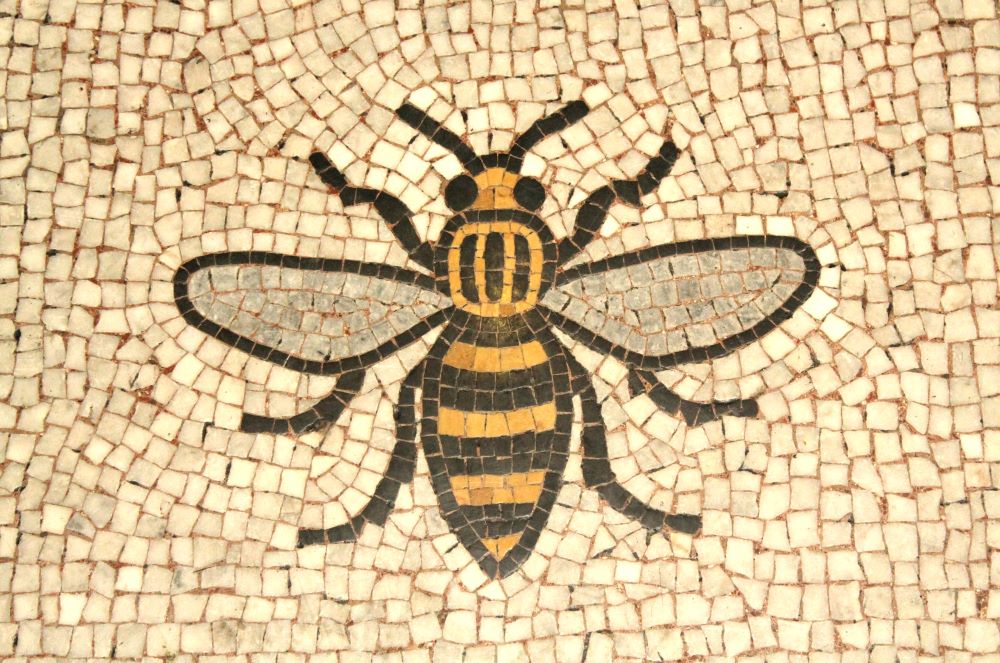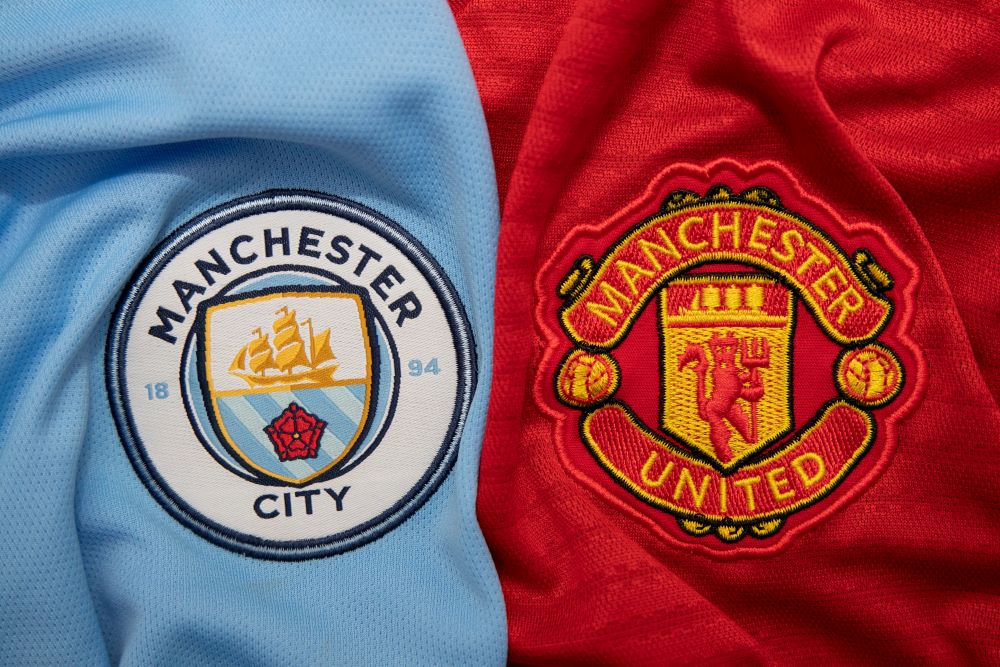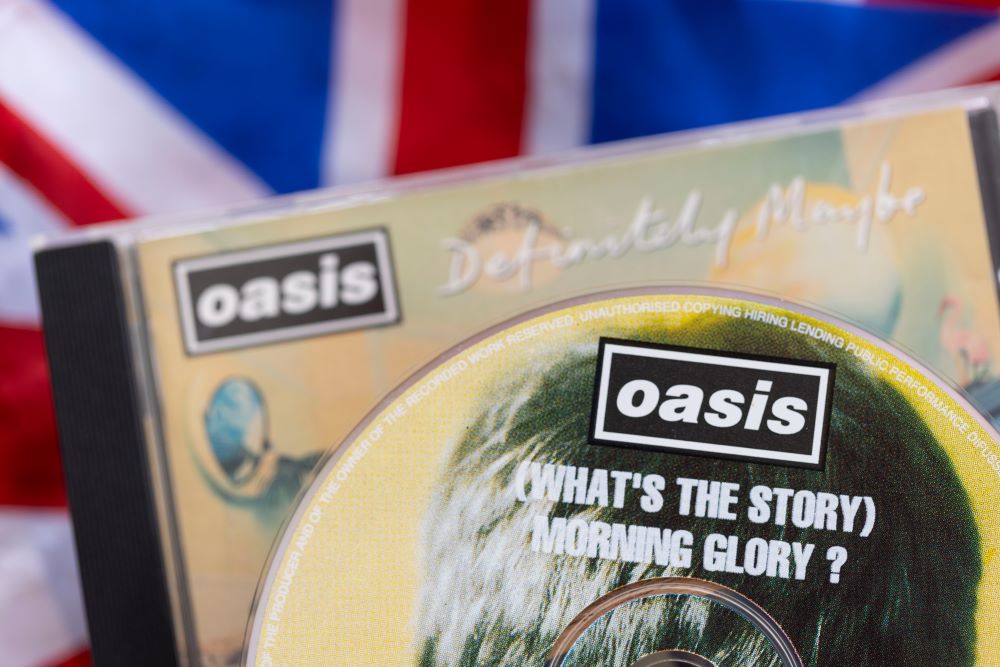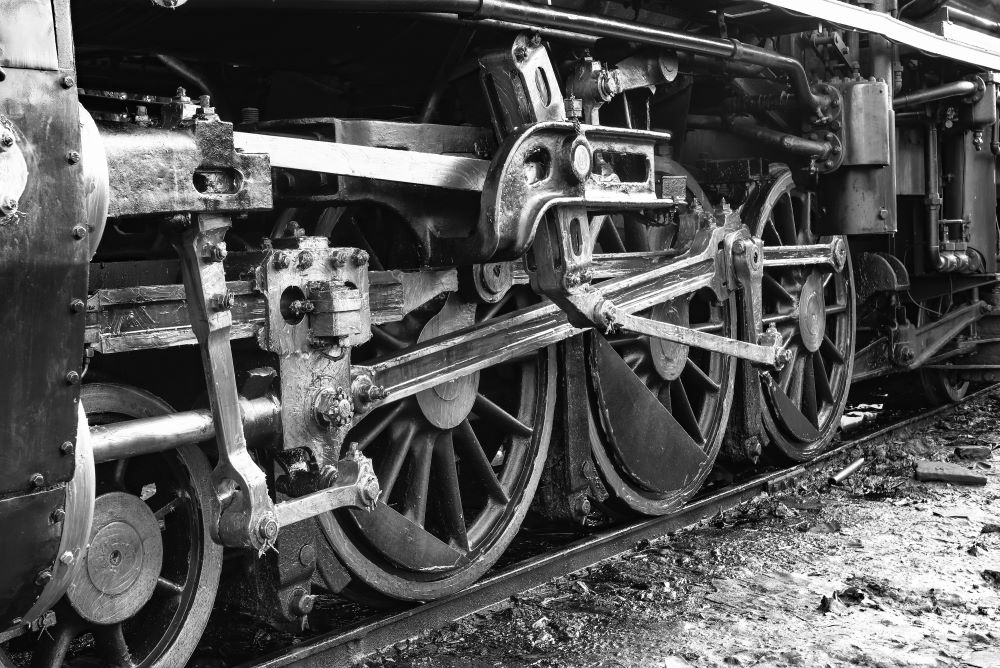Manchester stands as one of the UK’s most dynamic and influential cities, a place where rich history meets modern vibrancy. From its pivotal role in the Industrial Revolution to shaping global music and football cultures, Manchester has long punched above its weight on the world stage. But beyond the fame and accolades, it’s the city’s hardworking spirit and resilient people that have truly shaped its identity.
In this blog, we’ll explore the many reasons why Manchester continues to leave a lasting mark and why it remains one of the UK’s most iconic cities.
Spend any time in Manchester and you’ll soon notice a tiny symbol that’s impossible to ignore; the bee. It’s everywhere, from bollards and bins to street art, café logos, and the intricate mosaic floor of the Town Hall. But this isn’t just decorative, the Manchester bee carries deep meaning and pride.
The bee first became part of the city’s identity in 1853, when Manchester was officially granted city status. As a tribute to its pivotal role in the Industrial Revolution, seven worker bees were added to the city’s coat of arms, a symbol of Manchester’s industrious spirit and the hard-working people who powered its progress. The city was seen as a “hive of industry,” and its citizens as the tireless “worker bees” who kept it buzzing.
In recent years, the bee has taken on an even greater significance. It’s become a modern emblem of unity, strength, and resilience, values that continue to define the city and its people. Whether etched into street murals, worn as tattoos, or featured in local business branding, the bee is more than just a symbol of the past. It’s a proud expression of what it means to be part of Manchester.

Mention you’re from Manchester anywhere in the world, and the response is almost guaranteed, “Red or blue?” The city is home to two of the biggest names in world football, Manchester United and Manchester City, helping shape the identity of Manchester on a global scale.
The rivalry between them is fierce, and the geography reflects it, City’s Etihad Stadium stands proudly in the north, while United’s Old Trafford commands the south. Both are just a stone’s throw from the city centre, and both are steeped in history, pride, and passion. Manchester United holds a record 20 League titles, a symbol of decades of dominance, while Manchester City has risen to become one of the most formidable forces in both domestic and European football.
Yet beyond the derby days and club colours, football is something that unites Manchester. It’s part of the city’s rhythm, found in its streets, in the songs, and in the stories passed down through generations.

Manchester’s impact on music is undeniable. Few cities have shaped the sound of modern British music quite like it. From The Smiths to Stone Roses, Manchester has been home to some of the most influential artists of the last several decades. The Britpop wave of the 1990s, led by Oasis, cemented the city’s status as a global musical powerhouse, as Manchester’s creative spark continues to influence artists around the world.
The city’s independent spirit was captured by Factory Records, the iconic Manchester based label that championed pioneering acts such as Joy Division, Happy Mondays, and New Order, helping to redefine post-punk and alternative music in the UK.
Two of the most iconic moments in music history also happened in Manchester at the Free Trade Hall. In 1966, Bob Dylan was famously heckled with “Judas!” when he switched from acoustic to electric guitar, a pivotal moment in rock history. A decade later, the Sex Pistols played their first gig at the same venue that would inspire a new wave of Manchester talent, including The Fall, Magazine, and The Smiths.

No conversation about British television is complete without Coronation Street, the beloved soap opera that has become a national institution. First hitting screens on December 9, 1960, and still going strong, it holds the title of the world’s longest running TV drama. Set in the fictional Weatherfield but filmed right here in Manchester, Corrie has brought the warmth, wit, and resilience of Northern working-class life into millions of homes for over six decades.
More than just a soap, Coronation Street has played a huge role in shaping the city’s cultural identity on screen.
Manchester proudly holds the title of the world’s first industrial city, a place where ambition and hard work sparked a global transformation. In the early 19th century, the city rapidly evolved from a modest market town into a booming industrial hub, driven by its thriving cotton and textile industries.
Its pioneering spirit wasn’t limited to textiles. Manchester was home to several world firsts that shaped modern infrastructure, including the world’s first passenger railway, which opened in 1830, and the UK’s first working canal, the Bridgewater Canal, completed in 1761. These engineering feats helped position the city at the heart of Britain’s industrial revolution.
Today, Manchester’s remarkable industrial heritage is preserved and celebrated at the Science and Industry Museum, where visitors can explore the machines, inventions, and stories that powered a revolution and built a city known for changing the world.

Want to explore the most iconic spots Manchester has to offer? There’s no better way to experience the city’s famous landmarks than with a Manchester taxi tour.
Book your tour today and uncover the stories behind one of the UK’s most legendary cities.